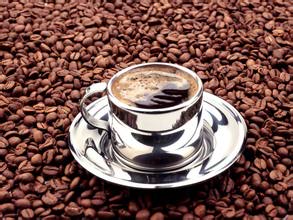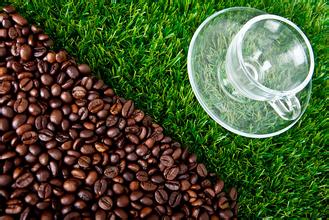Smooth and sweet Venezuelan coffee beans introduce boutique coffee
The best coffee names in Venezuela are: Montebello (San Crist ó bal de Tachira) in Tazira, Miramar (Rubio) in Rubio de Tachira, Granija (Timothe) in Merida, Ala Granija in Santa Anna de Tachira (Santa Anna de Tachira) in Tazira. Other premium brands include Maracaibos (the name of the coffee export port), Merida, Trujillo (Trujillo), Santa Filomena and Cucuta.
One of the many plantations in Merida at the foot of the Andes belongs to the Pablo and Pulido families, an ancient farm that has been allowed to downsize. Since taking over the farm in the early 1980s, the Pulido family has harvested coffee from existing bourbon coffee trees and planted new trees to expand the farm.
The area around Caracas, once famous for its coffee, has resumed production. Another Jean and Andries from Turgua. Tippica Coffee trees are also planted on the Andres Boulton plantation.
Venezuelan coffee tastes different from other coffee in Latin America. It is delicious, light and less sour than traditional coffee, which makes it not only blended but also distinctive.
Venezuelan coffee beans
The taste is smooth and sweet. Compared with other coffee in Latin America, Venezuelan coffee is lighter, full-grained, sour, sweet and deep.
Venezuela sells "socialist" coffee in Venezuelan cafes.
Recently, there is a particularly interesting phenomenon in the Venezuelan Cafe, a state-run coffee chain in Venezuela: the store provides customers with two contrastive price lists. Each kind of coffee here has two prices of "socialism" and "capitalism". In this special way, cafes are intended to show customers the disadvantages of a free market and the benefits of regulating the economy.
At a Venezuelan Cafe in the center of Caracas, Venezuela's capital, the "socialist" price of a large cup of coffee on the menu is 2.5 Bolivar. In addition, the menu lists the "capitalist" price of the coffee sold elsewhere at 5 Bolivar (7.74 yuan). It is said that this is not only to provide discounted coffee to Venezuelans, but also to promote the left-wing politics of Venezuelan President Hugo Chavez.

Important Notice :
前街咖啡 FrontStreet Coffee has moved to new addredd:
FrontStreet Coffee Address: 315,Donghua East Road,GuangZhou
Tel:020 38364473
- Prev

Introduction to Dominica coffee with mellow taste and moderately bright sour taste
Dominica coffee beans (Caribbean) Dominica coffee is grown in highlands and lowlands, and its taste is slightly different. The upland is sour, but the taste is rich; the lowland is less sour and tastes smoother. Boutique coffee has become popular in recent years. The high-quality coffee beans produced by some Dominican estates have a rich aroma, mellow taste and moderately bright sour taste.
- Next

Hawaiian Kona Coffee with strong sour and sweet taste introduces fine coffee
Kona coffee beans are average and neat in shape, with strong sour and sweet taste, moist and smooth taste. Because it grows on volcanoes and has high-density artificial farming, each bean can be said to be a spoiled lady, beautiful, plump and with baby-like skin. Although Hawaii is often affected by tornadoes, climatic conditions affect the coffee industry
Related
- Does Rose Summer choose Blue, Green or Red? Detailed explanation of Rose Summer Coffee plots and Classification in Panamanian Jade Manor
- What is the difference between the origin, producing area, processing plant, cooperative and manor of coffee beans?
- How fine does the espresso powder fit? how to grind the espresso?
- Sca coffee roasting degree color card coffee roasting degree 8 roasting color values what do you mean?
- The practice of lattes: how to make lattes at home
- Introduction to Indonesian Fine Coffee beans-- Java Coffee producing area of Indonesian Arabica Coffee
- How much will the flavor of light and medium roasted rose summer be expressed? What baking level is rose summer suitable for?
- Introduction to the characteristics of washing, sun-drying or wet-planing coffee commonly used in Mantenin, Indonesia
- Price characteristics of Arabica Coffee Bean Starbucks introduction to Manning Coffee Bean Taste producing area Variety Manor
- What is the authentic Yega flavor? What are the flavor characteristics of the really excellent Yejasuffi coffee beans?

